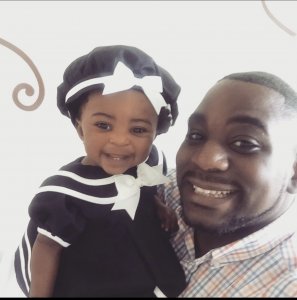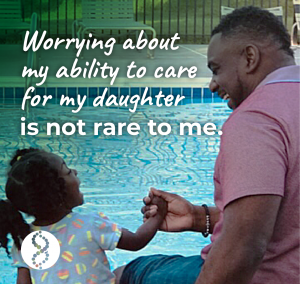By: Jamel, living with CMT
I was 16 years old when I first heard about a disease called Charcot-Marie-Tooth. Growing up, I played basketball and football and lived a very active lifestyle. A broken foot during a game or ongoing football injuries seemed normal — I’ll heal up and get back out there. But as my aches, pains and injuries increased, it was clear that something wasn’t quite right. But then again, nothing about my journey to learn I had CMT was.
“You Can’t Have CMT Because You’re Black.”
CMT is as diverse as the people it’s affecting worldwide. Yet, due to a lack of knowledge about this rare disease, it leaves far too many people and families struggling to find answers. Early on in my journey, a doctor told me I was unlikely to have CMT because I’m Black. My symptoms, genetic testing and research would suggest otherwise.
Today, I cannot move like I once did with ease. I can no longer keep up with my family on long walks, and my thumbs go numb doing something as simple as trying to open a pack of fruit snacks for my daughter.
But the most challenging part of living with CMT is the emotional toll it takes — trying to be optimistic about the future while accepting the unknown of tomorrow. It’s a constant struggle to believe I can still thrive in my life even if I’m unable to do things that used to come naturally to me — especially as a dad.
A future without CMT would give me more certainty and clarity where there is currently doubt and fear. I often think about the significant moments of my life that are yet to come: Will I be able to take my daughter to a father-daughter dance? Will I still be able to walk her down the aisle when she gets married?
From the Shadows to the Stage: Elevating CMT Awareness & Answers
CMT may be a rare disease, but it’s not rare to me. Like I was at age 4, my daughter is not showing signs of CMT and is a happy, active toddler. I haven’t been able to determine my CMT sub-type yet, but understanding that for both of us is one of the reasons I’m involved with the CMT Research Foundation.
 As a CMT Research Foundation ambassador, my goal is to make sure people living with CMT know they are not alone. I want others who are struggling with the disease to see themselves in me. No matter who you are, I want to shine a brighter light on CMT and everyone affected who is searching for answers to live a better life.
As a CMT Research Foundation ambassador, my goal is to make sure people living with CMT know they are not alone. I want others who are struggling with the disease to see themselves in me. No matter who you are, I want to shine a brighter light on CMT and everyone affected who is searching for answers to live a better life.
A treatment for me would mean everything. Regaining all the movement I lost would make me so ecstatic I would moonwalk across a stage. I’m doing everything I can to help fund the research that will make that possible.
“I would like to thank all the spouses, family members and loved ones who show up every day to provide support and care for those of us with CMT. I salute you because you have been the best teammates we can have.”
